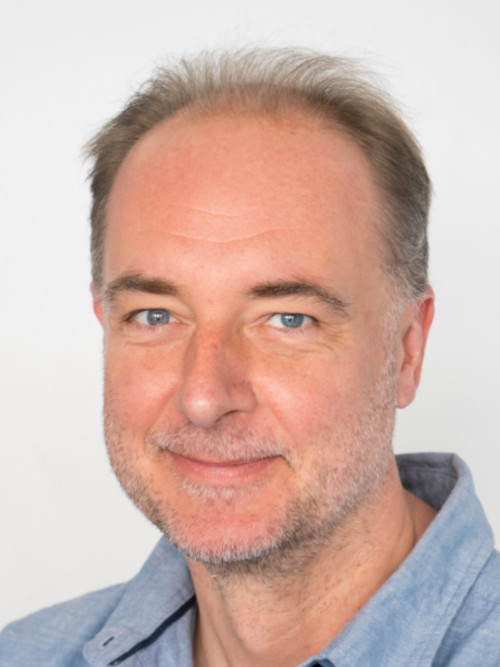Christian Deppe
Dr. math.
Institute for Communications Technology
Technische Universität Braunschweig
Schleinitzstraße 22 (room 218)
38106 Braunschweig
christian.deppe@tu-braunschweig.de
phone: +49 (0) 531 391 - 2495
fax: +49 (0) 531 391 - 5192

Christian Deppe received his Dipl.-Math. degree in mathematics from the University of Bielefeld in 1996 and his Dr.-math. degree, also from the University of Bielefeld, in 1998. He then worked there until 2010 as a research associate and assistant at the Faculty of Mathematics, Bielefeld. In 2011, he took over the management of the project "Safety and Robustness of the Quantum Repeater" from the Federal Ministry of Education and Research at the Faculty of Mathematics, Bielefeld University, for two years. In 2014, Christian Deppe was funded by a DFG project at the Chair of Theoretical Information Technology, Technical University of Munich. At the Friedrich Schiller University in Jena, Christian Deppe took up a temporary professorship at the Faculty of Mathematics and Computer Science in 2015. Until 2023, he worked for six years at the Chair of Communications Engineering at the Technical University of Munich and since January 2024 has taken on new tasks at the Institute of Communications Engineering at the TU Braunschweig. He is project leader of several projects funded by the BMBF and the DFG.
SS 2025
SS 2025 Lecture: Quantum Communication Networks
SS 2025 Lecture: Network Information Theory
WS 2024/25
WS 2024/25 Lecture: Advanced topics in communication theory
WS 2024/25 Lecture: Introduction to quantum information technology and quantum computing
WS 2024/25 Lecture: Post Shannon Theory
SS 2024
WS 2023/24
SS 2023
WS 2022/23
SS 2022
WS 2021/22
SS 2021
WS 2020/2021
SS 2020
WS 2019/2020
SS 2019
WS 2018/19
SS 2018
WS 2016/17
SS 2016
WS 2015/16
SS 2015
WS 2014/15
SS 2014
Quantum Communication Networks
Investigation into communication via quantum channels started in the 1960s. Quantum mechanics differs significantly from classical mechanics, it has its own laws. Quantum information theory unifies information theory with quantum mechanic, generalizing classical information theory to the quantum world.Existing approaches, using quantum mechanics in networks to provide security, mainly carry out protocols for key exchanges between individual nodes. In many cases, quantum key distribution (QKD) is used from one node to another. On the other hand, there are limited analyses focused on the complexity and capacity of these processes. Therefore, the current research and investments are principally pivoted on military and governmental communications, while civil users are strongly concerned with speed and complexity (which significantly affect latency and quality of the communications).
Post Shannon Theory (Message Identification)
Today, machine-to-machine communication and machine-to-human communication are essential components of the 5th generation of mobile communications. In order to realize these highly demanding applications, the necessary latency, resilience and data security requirements must be embedded in the physical domain.
Many of these applications are implemented in terms of the Shannon transmission scheme. For this type of communication, the receiver must be able to decode all messages from the sender. The corresponding communication task is inefficient in many cases. In contrast, post Shannon communication models can lead to significant performance improvements. One example is the message identification scheme of Ahlswede and Dueck, if applied appropriately for the aforementioned applications. In this scenario, the receiver only wants to decide whether the sender has sent a relevant message or not. Of course, the sender has no prior information about the messages that the receiver considers important. The relevance of certain messages for the receiver can be changed during the application.
Error-Correcting Codes with Feedback
We consider the problem of transmitting messages over a noisy channel with noiseless feedback. A sender wants to transmit a message over a noisy binary channel. We have a passive feedback, that means that the sender always knows what has been received. The i-th code letter depends on the message we want to transmit and the (i-1) symbols which have been received before. We suppose that the noise does not change more than a fixed number of symbols of a codeword. We consider several channel models with partial feedback and limited magnitude and construct coding strategies. Furthermore, we determine the capacity error function for these channels.